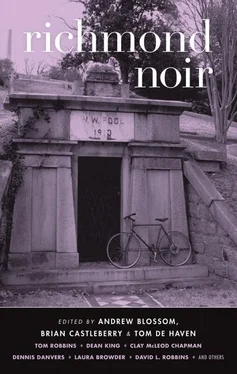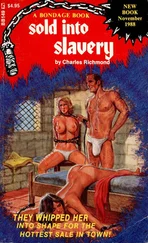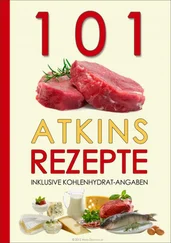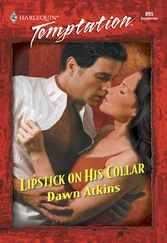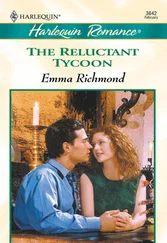X. Atkins - Richmond Noir
Здесь есть возможность читать онлайн «X. Atkins - Richmond Noir» весь текст электронной книги совершенно бесплатно (целиком полную версию без сокращений). В некоторых случаях можно слушать аудио, скачать через торрент в формате fb2 и присутствует краткое содержание. Город: New York, Год выпуска: 2010, ISBN: 2010, Издательство: Akashic Books, Жанр: Детектив, на английском языке. Описание произведения, (предисловие) а так же отзывы посетителей доступны на портале библиотеки ЛибКат.
- Название:Richmond Noir
- Автор:
- Издательство:Akashic Books
- Жанр:
- Год:2010
- Город:New York
- ISBN:978-1-933354-98-9
- Рейтинг книги:4 / 5. Голосов: 1
-
Избранное:Добавить в избранное
- Отзывы:
-
Ваша оценка:
- 80
- 1
- 2
- 3
- 4
- 5
Richmond Noir: краткое содержание, описание и аннотация
Предлагаем к чтению аннотацию, описание, краткое содержание или предисловие (зависит от того, что написал сам автор книги «Richmond Noir»). Если вы не нашли необходимую информацию о книге — напишите в комментариях, мы постараемся отыскать её.
Richmond Noir — читать онлайн бесплатно полную книгу (весь текст) целиком
Ниже представлен текст книги, разбитый по страницам. Система сохранения места последней прочитанной страницы, позволяет с удобством читать онлайн бесплатно книгу «Richmond Noir», без необходимости каждый раз заново искать на чём Вы остановились. Поставьте закладку, и сможете в любой момент перейти на страницу, на которой закончили чтение.
Интервал:
Закладка:
Tug grabbed Marguerite and dashed downstairs to the dining room where Mr. Not kept a glass-paned bookcase. Some shelves held books and building models, but on one shelf there was a set of fancy long knives, glinting in their velvet exhibit covers. Tug had always admired them for their beauty. They made the bookcase look royal and mysterious. Tug gazed now at the array of knives, not knowing an East African panga from a Malaysian golok, but he went into the drawer of the antique desk across the room and got the big key and picked a panga from the case.
Holding Marguerite in one hand and the panga in the other, Tug climbed the stairs to the hallway bathroom. Then he set Marguerite on the floor and slowly opened the door. His mother sat with her back pressed against the tub. Mr. Not was kneeling down with his hand wrapped around her silk bathrobe, the one he had given her as a Valentine’s Day gift. Her nose was bleeding, and she was staring at the floor.
Tug heard the rhythm of a hammer crashing down on an anvil with the force of a black god. With both hands on the long knife, Tug raised it high above his head and plunged it deep into Mr. Not’s back. The man straightened with a sharp intake of breath and looked up at the ceiling. He reached behind him to remove the knife, which had pierced his kidney. Then he turned around to face his attacker and peered into Tug’s eyes, but his mouth couldn’t register surprise. Mr. Not had only enough strength left to slump down next to Velma, who did not glance up until he was sitting beside her, leaning his head on her shoulder.
Tug jumped back into the hallway, picked up Marguerite, stuffed her in his backpack, continued out to the swing set, grabbed his skateboard, and ran and ran and ran. He didn’t know where he was headed as he sprinted down East Leigh with its manicured lawns behind wrought-iron fences. When he got to Broad Street, he stopped and just stood there, looking neither left nor right. A wiry man of average height sidled up to him.
“Look lively, son. Where you headed?”
Tug glanced up at the Tin Man. “To the cemetery. I mean, to the parking lot.”
“Well, you’re on the wrong side of the street. Cross here and catch the Riverview or the Churchill bus. That’ll get you where you want to go. What’s your name, son?”
“Harold Holloway. Are you the Tin Man?”
“No, they call me Dumptruck. Be safe, son.” The man smiled him on his way.
Tug caught the Riverview and the driver let him ride without paying a fare. He got off the bus when he recognized 12th Street and Broad and walked the rest of the way to the overpass with the historical marker that told of the exploits of Gabriel the Blacksmith, who was hung on the gallows and buried in the Burial Ground for Negroes. Tug followed the cobblestone path that led to the empty parking lot with numbered spaces and overgrown grass in the medians.
After setting his backpack down, he took Marguerite out and leaned her against some tall weeds. “Marguerite,” he said, “don’t think about it. Don’t talk about it. Don’t want to.” He jumped on his skateboard and rode it as best he could on the expanse of concrete. He glided back and forth over the blacktop for hours.
The lights of the city started winking on. MCV Medical Center glowed on the hill. Tug wanted to go home. He wanted to see his mother, but didn’t know if she would be angry with him. He remembered once when Mr. Not had slapped her and Tug tried to come between them, his mother had swatted him firmly on his buttocks and sent him to his room with the warning to stay out of grown folks’ business . Where could he go? Back to Mrs. Richardson’s house?
There were places to hide under the old tracks, but he was afraid to go into the dark wooden enclosures that looked like they’d once kept slaves penned up. Tug wanted to be headed home on the Starship Enterprise with Mr. Spock or in the Batmobile with the Dark Knight. He wanted to be in the house on East Leigh Street with his mother, watching Dorothy click her heels. He turned to the stone arch under the freeway. There, the concrete parking lot gave way to dirt. What had his mother told him about those black ancestors who slept below the ground? She had said they wouldn’t hurt him. Gabriel, where are you? Will they hang me on the gallows? Tug found a place under the freeway. Exhausted, with his back against the wall, he sat Marguerite on his lap to comfort her.
The sun shone brightly down on the parking lot. As Tug flew over it, he watched brawny black men and strong black women holding down the Sandman so he couldn’t get away. When Tug drew closer, he saw that it was Mr. Not they all held fast. His face was chalk-white and his lips were smeared in a grotesque smile. Bury him , said Gabriel Ogun.
Yes , said the people, dig a deep hole!
After explaining to the police how Ray Harold Vermeer came to be sitting lifeless on the bathroom floor, Velma enlisted their aid in finding her son. The police questioned people up and down East Leigh Street. The answers they got led them to Broad Street, where they talked to shopkeepers and bystanders, including a little man named Dumptruck, who confirmed Velma’s suspicions. The police drove her out to the Burial Ground for Negroes, where she found Tug under the overpass. With Marguerite sitting beside him, spotless in her gingham gown, the boy was asleep on his knees. In front of him was a hole three feet deep and a foot and a half wide. Tug’s fists were filled with red soil. On his lips were the words of the people:“Bury him deep! Bury him deep!”
The Aprentice
by Clint McCown
Hollywood Cemetery
Yes, I understand the gravity of my actions. I’m no idiot. I’m something of a historian, in fact, and I know that history itself is more or less a record of our greatest collective depravities: who did what to whom and for how long. And the desecration I’ve committed — yes, I admit it was a desecration — strikes at the heart of something we in these parts hold dear. This is Richmond, after all, capital of the Confederacy, where history is still a living, breathing animal, with teeth and fangs and a clear sense of identity. And once you start messing with identity, you’re treading on dangerous ground. Eddie sure found that out. He’s the one who put me up to it, by the way.
It wasn’t a political statement, though I’m sure there’ll be reporters who try to turn it into that. But nothing could be further from the truth. I treasure my Southern roots. My family used to be one of the most prominent in the city, having once owned the ironworks factory on the James River during the war. Had Grant’s army not driven my ancestors into exile when the city fell, I might have been a person of some influence in our community. But sometimes the world spins off-kilter. My inheritance was siphoned off by carpetbaggers. As a consequence, I was never allowed to take my rightful place among the aristocracy, and have instead been forced into a series of menial occupations, the most recent being that of a bulldozer’s apprentice. You might think that a family’s reversal of fortune shouldn’t weigh so heavily on a descendant born a century after the fact. But I assure you, the pain is as acute to me as if I’d suffered the loss only yesterday.
My doctor refuses even to acknowledge my fallen state. He says I’ve manufactured a personal family history from the intellectual pieces of my former life. That’s an intriguing tactic on his part, I have to admit. I suspect he has an article in the works and I’m his guinea pig in what he imagines will be some breakthrough form of therapy. But he’s destined for disappointment. I could never disavow my heritage.
My misstep , let’s call it, was no easy chore. Cemeteries have always given me the creeps. But besides that, the place tends to be crowded. Hollywood Cemetery is like the Disney-world of final resting places. It’s in a beautiful spot, up there on that high bluff overlooking the James River. Young lovers picnic there. Artists set up their easels. Photographers prowl around the statuary. Kids climb on the mausoleums. Historians walk the avenues taking notes. I used to do that myself, actually, when I was researching my dissertation. I was writing about the military and political history of the United States in the nineteenth century, so Hollywood Cemetery was the ideal field trip for me. President Monroe is buried there, and President Tyler too. Tyler was the father-in-law of Jefferson Davis, by the way. And there’s General George Pickett, of the infamous Pickett’s charge at Gettysburg. He’s buried at the north end of the cemetery, along with eighteen thousand regular Confederate soldiers. J.E.B. Stuart is in Hollywood, and General Fitzhugh Lee, nephew of Robert E. Lee. Twenty-five Confederate generals in all. General Longstreet isn’t there, but three of his children are, killed by the scarlet fever epidemic of 1862. Seven governors of Virginia. And, of course, the proverbial jewel in the crown, President Jefferson Davis himself.
Читать дальшеИнтервал:
Закладка:
Похожие книги на «Richmond Noir»
Представляем Вашему вниманию похожие книги на «Richmond Noir» списком для выбора. Мы отобрали схожую по названию и смыслу литературу в надежде предоставить читателям больше вариантов отыскать новые, интересные, ещё непрочитанные произведения.
Обсуждение, отзывы о книге «Richmond Noir» и просто собственные мнения читателей. Оставьте ваши комментарии, напишите, что Вы думаете о произведении, его смысле или главных героях. Укажите что конкретно понравилось, а что нет, и почему Вы так считаете.
